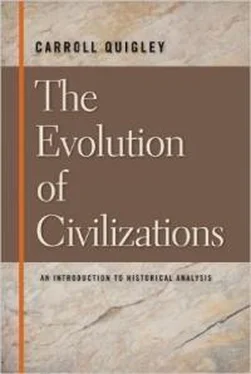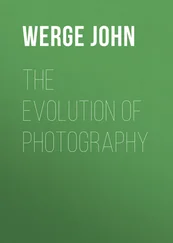Having gathered all the "relevant" evidence, the scientist may proceed to the second part of scientific methodology, making a hypothesis. In doing this, two rules must be followed: (a) the hypothesis must explain all the observations and (b) the hypothesis must be the simplest one that will explain them. These two rules might be summed up in the statement that a scientific hypothesis must be adequate and it must be simple. Once again let us confess that these two rules are idealistic rather than practicable, but they remain, nevertheless, the goals by which a scientist guides his activities.
When we say that a hypothesis must be adequate, and thus must include all of the relevant observations, we are saying something simple. But carrying out this simple admonition is extremely difficult. It is quite true that every scientific hypothesis suffers from inadequate evidence—that is, it does not include in its explanation all the relevant evidence, and would be different if it did so. It is not easy to tear any event out of the context of the universe in which it occurred without detaching it from some factor that has influenced it. This is difficult enough in the physical sciences. It is immensely more difficult in the social sciences. It is likely that in any society the factors influencing an event are so numerous that any effort to detach an event from its social context must inevitably do violence to it. The extreme specialization of most social studies today, concentrating attention on narrow fields and brief periods, is a great hindrance to our understanding of such special fields, although the fact is not so widely recognized as it should be, since any specialist's work is usually examined only by his fellow specialists who have the same biases and blind spots as he does himself. But a specialist from one area of study who examines the work being done in some other area cannot fail to notice how the overspecialized training of the experts in his new area of interest has handicapped their understanding of that area.
The second requirement of a scientific hypothesis—that it should be simple—is also more difficult to carry out in practice than it is to write down in words. Essentially, it means that a hypothesis should explain the existing observations by making the fewest assumptions and by inferring the simplest relationships. This is so vital that a hypothesis is scientific or fails to be scientific on this point alone. Yet in spite of its importance, this requirement of scientific method is frequently not recognized to be important by many active scientists. The requirement that a scientific hypothesis must be "simple" or, as it is sometimes expressed, "economical" does not arise merely from a scientist's desire to be simple. Nor does it arise from some esthetic urge, although this is not so remote from the problem as might seem at first glance. When a mathematician says of a mathematical demonstration that it is "beautiful," he means exactly what the word "beautiful" means to the rest of us, and this same element is undoubtedly significant in the formulation of theory by a scientist as well.
The rule of simplicity or economy in scientific hypothesis has a number of corollaries. One of these, called "the uniformity of nature," assumes that the whole universe is made of the same substances and obeys the same laws and, accordingly, will behave in the same way under the same conditions. Such an assumption does not have to be proved —indeed, it could not be proved. It is made for two reasons. First, because it is simpler to assume that things are the same than it is to assume that they are different. And, second, while we cannot prove this assumption to be correct even if it is correct, we can, if it is not correct, show this by finding a single exceptional case. We could demonstrate the uniformity of nature only by comparing all parts of the universe with all other parts, something that clearly could never be achieved. But we can assume this, because it is a simpler hypothesis than its contrary; and, if it is wrong, we can show this error by producing one case of a substance or a physical law that is different in one place or time from other places or times. To speak briefly, we might say that scientific assumptions cannot be proved but they can be refuted, and they must always be put in a form that will allow such refutation. Other examples or applications of the rule of uniformity of nature would be the scientific assumptions that "man is part of nature" or that "all men have the same potentialities." Neither of these could be proved, because this would involve the impossible task of comparing all men with one another (including both past and future men) and with nonhuman nature, but these assumptions can be made under the rule of simplicity of scientific hypothesis or its corollary, the rule of the uniformity of nature. Thus they do not require proof. But, on the other hand, if these assumptions are not correct, they could be disproved by one, or a few clear-cut cases of exceptions to the rule.
Thus, in the final analysis, these rules about scientific hypotheses are not derived from any sense of economy or of esthetics, but rather arise from the nature of demonstration and proof. The familiar judicial rule that a man is to be assumed innocent until he has been proved guilty is based on the same fundamental principles as these rules about scientific hypotheses, and, like these, rests ultimately on the nature of proof. We must assume that a man is innocent (not guilty) until we have proof of his guilt because it is always simpler to assume that things are not so than to assume that they are, and also because no man can prove the negative "not guilty" except by the impossible procedure of producing proof of innocence during every moment of his past life. (If he omits a moment, the charge of guilt could then be focused on the period for which proof of innocence is unobtainable.) But by making the general and negative assumption of innocence for all men, we can disprove this for any single man by the much easier procedure of producing evidence of guilt for a single time, place, and deed. Since it is true that a general negative cannot be demonstrated, we are entitled to make that general negative assumption under the rule of the simplicity of scientific hypothesis, and to demand refutation of such an assumption by specific positive proof.
A familiar example of this method could be seen in the fact that we cannot be required to prove that ghosts and sea serpents and clairvoyance do not exist. Scientifically we assume that these things do not exist, and require no evidence to justify this assumption, while the burden of producing proofs must fall on anyone who says that such things do exist.
The rule of simplicity in scientific hypotheses is by no means something new. First formulated in the late Middle Ages, it was known as "Occam's razor" and was applied chiefly to logic. Later it was applied to the natural sciences. Most persons believe that Galileo and his contemporaries made their great contributions to science by refuting Aristotle. This "refutation of Aristotle," or, more correctly, "refutation of Plato and of the Pythagorean rationalists," was only incidental to the much more significant achievement of making the commonly accepted rules about the universe more scientific by applying to them Occam's razor. This was done by assuming that the heavenly bodies and terrestrial objects operate under the same laws (laws that were later enunciated by Newton). This application of Occam's razor to natural phenomena was a major step forward in making the study of nature scientific. Application of this rule to the social sciences (that is, to phenomena involving subjective factors) still remains to be done, and would provide a similar impetus to the advance of this area of human thinking. It has already been done in judicial procedure (by such rules as the assumption of innocence and the needlessness of proving negatives), and the chief task in American law at the present time is to protect and, if necessary, extend the application of Occam's razor to judicial procedure. Many persons in recent years have felt uncomfortable over the demand that certain persons should "prove" that they are not "communists," but few realized that the unfairness of such a demand rests on the nature of scientific assumption and the nature of proof and, above all, on the violation of Occam's razor.
Читать дальше










